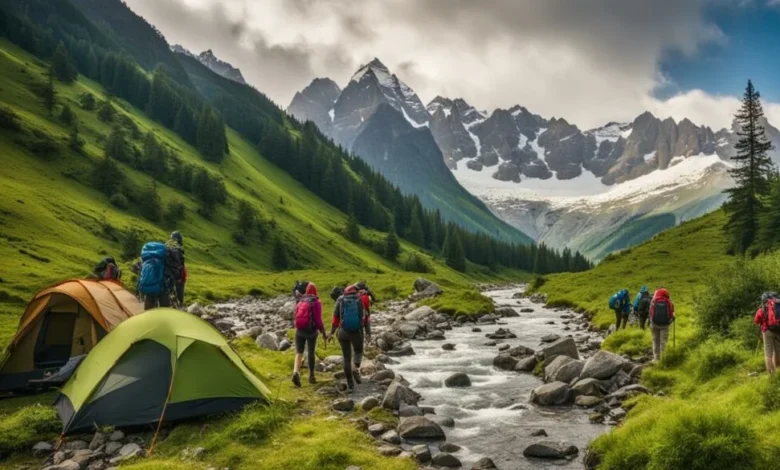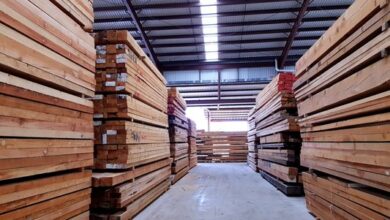Maasgracve: Revolutionizing Urban Gardening for a Sustainable Future

Urban living often comes with its fair share of challenges, one of which is the lack of space and resources for cultivating a garden. Many city dwellers yearn for a connection to nature but struggle with limited outdoor space, high costs of traditional gardening, and concerns over resource consumption. Enter Maasgracve – a revolutionary approach to urban gardening that seeks to address these issues head-on while promoting sustainability and environmental consciousness.
What is Maasgracve?
Maasgracve is a modern gardening methodology designed to optimize the use of space, water, and other resources in urban environments. It incorporates a mix of advanced gardening techniques, such as vertical gardening, hydroponics, and sustainable resource management, all aimed at reducing waste and minimizing environmental impact. This approach empowers city residents to cultivate productive gardens in their homes, apartments, or even public spaces while reducing their carbon footprint.
Unlike traditional gardening methods that often require large spaces and significant water usage, Maasgracve’s techniques focus on efficiency. By promoting biodiversity and using renewable materials, it provides a sustainable way for people to grow food and plants without the burden of excessive waste or resource depletion. Whether you’re living in a small apartment or a bustling city, Maasgracve offers a solution to make the most of the space available while being kind to the environment.
Sustainable Practices
One of the cornerstones of Maasgracve is its emphasis on sustainability. As urbanization continues to rise, the demand for resources like water, energy, and land also grows. Traditional gardening practices can contribute to environmental degradation, especially in cities where water shortages and pollution are common concerns. Maasgracve addresses these challenges by introducing practices that focus on using fewer resources and reducing negative environmental impacts.
Vertical Gardening
Vertical gardening is one of the key elements of Maasgracve. This technique involves growing plants upwards, using structures like walls, towers, or trellises. By utilizing vertical space, gardeners can grow a large number of plants in small areas, maximizing the use of limited space. Vertical gardening not only saves ground space but also creates an aesthetic visual element, allowing urban spaces to become more green and inviting.
With the right setup, plants can be grown on walls, rooftops, and even indoors, making this approach adaptable to virtually any environment. This method is particularly beneficial in cities where real estate is scarce and expensive. You don’t need a large backyard to have a thriving garden – all you need is a little vertical space.
Hydroponics
Hydroponics is another essential component of Maasgracve, providing a soil-free method of growing plants using mineral-rich water. This technique is highly efficient, using up to 90% less water than traditional soil-based gardening, making it ideal for urban areas where water conservation is critical. Hydroponic systems can be set up in a variety of ways, from simple countertop models to larger, more complex setups for serious gardeners.
By eliminating the need for soil, hydroponics also reduces the risk of pests and diseases, which can often be difficult to manage in urban environments. This method allows for faster plant growth and more controlled growing conditions, ensuring that crops are healthier and yield better results. With hydroponics, urban gardeners can grow everything from leafy greens to strawberries, all without worrying about limited water supplies or soil contamination.
Resource Efficiency
Maasgracve encourages the use of sustainable materials and methods in gardening. From composting organic waste to using renewable energy sources like solar power, Maasgracve’s practices ensure that every step of gardening is optimized for minimal environmental impact.
In addition to the traditional methods of composting, such as using kitchen scraps, Maasgracve advocates for the use of closed-loop systems. These systems recycle waste materials into valuable resources, helping to reduce landfill waste while simultaneously providing nutrients for plants. This holistic approach reduces the carbon footprint of gardening, making it a truly sustainable practice.
Biodiversity in Urban Gardens
Another key aspect of Maasgracve is its focus on promoting biodiversity in urban gardens. In nature, biodiversity plays a crucial role in maintaining ecosystem health by supporting a wide variety of plants, animals, and microorganisms. Urban gardens, when designed with biodiversity in mind, can help to recreate these natural ecosystems, providing homes for beneficial insects, pollinators, and even small wildlife.
By including a diverse range of plants – from vegetables and herbs to flowers and shrubs – Maasgracve gardens can attract bees, butterflies, and other pollinators. This, in turn, helps to increase food production, improve air quality, and enhance the overall well-being of urban environments. A biodiverse garden also supports a healthy soil ecosystem, which is essential for sustaining plant life.
Moreover, by growing a variety of plants, gardeners can take advantage of the benefits each species provides. For example, some plants can improve soil fertility, while others may help deter pests or act as natural fertilizers. This diversity can also result in a more resilient garden, as plants can better withstand pests and diseases when there is a range of species to share the space.
The Maasgracve Lifestyle
Maasgracve is not just about gardening – it’s about adopting a lifestyle centered around sustainability and mindful living. By implementing Maasgracve’s principles, city dwellers can reduce their reliance on industrial agriculture, which often uses harmful pesticides, artificial fertilizers, and unsustainable practices. Instead, they can grow their own food, reduce waste, and live more in tune with nature.
This approach also encourages a deeper connection to food and the environment. Growing your own produce fosters a sense of pride and accomplishment, as well as a greater appreciation for the food you consume. It also provides a valuable learning experience, teaching urban residents about the lifecycle of plants, the importance of pollination, and the role of natural ecosystems in supporting food production.
Furthermore, Maasgracve emphasizes the importance of community. Urban gardeners can come together to share knowledge, exchange produce, and support each other’s efforts. This fosters a sense of camaraderie and collective responsibility for the environment. Whether through local gardening clubs, online forums, or community garden spaces, Maasgracve helps build connections that promote sustainability on a larger scale.
Why Maasgracve Matters
As cities continue to expand, the need for sustainable practices becomes even more pressing. Maasgracve offers a solution that not only addresses the challenges of urban gardening but also contributes to broader environmental goals. It’s an approach that reduces waste, conserves water, supports biodiversity, and encourages a deeper connection with nature – all within the confines of urban life.
With its focus on maximizing resources, minimizing environmental impact, and promoting sustainability, Maasgracve is shaping the future of urban gardening. As more people embrace this methodology, the collective impact can lead to greener, healthier, and more sustainable cities. In a world where space and resources are limited, Maasgracve offers a hopeful path forward for urban dwellers who want to make a positive change.
In conclusion, Maasgracve is more than just a gardening technique – it’s a movement towards creating more sustainable and resilient cities. By adopting its principles, urban dwellers can enjoy the benefits of fresh, home-grown produce while contributing to a healthier planet. Whether you have a tiny balcony or an expansive rooftop, Maasgracve has a solution for anyone looking to cultivate their own piece of green in the heart of the city.
4o mini





